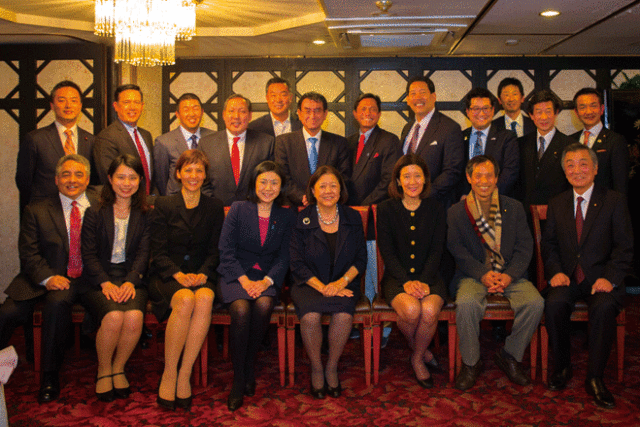
By Maiya Gessling
The North American Post
Seattle City Council President Bruce Harrell traveled to Japan with the 2016 Japanese American Leadership Delegation (JALD) as a Seattle representative earlier in March. The delegation visited Tokyo and Kobe to meet with dozens of prominent individuals and organizations.
NAP: What are your first impressions of Japan?
Bruce Harrell: “It’s a pretty incredible place. I loved the culture, the people and the food. I was very impressed with what I saw and I was able to see several aspects in Japan from the prime minister down to some of the rural areas.”
Can you explain the intent behind JALD?
“This t r ip was paid for by the Japanese government and the purpose was for me to completely immerse myself in their issues and challenges, and their perception of the United States. I met Prime Minister Abe, I met leaders at the top—the lower house and the upper house, I met the princess of the royal family.”
What do you think are the biggest issues facing Japan today?
“The biggest issue is the aging population. Their birth rates are much lower than the 2.1 ratio that’s necessary to repopulate their population. They also have declining enrollment in youths going to schools in the United States, so they’re not able to get the cross-cultural training they once had.”
What solutions, do you think, would be of most help?
“I think that they need to seriously e x a m i n e t h e i r i m m ig r a t io n a n d adoption policies. I think they have to see themselves more as a global citizen, with the understanding that they are an island nation.
It’s not my role to tell them what they must do, but I think they have to reevaluate their own culture and how it relates to their needs.
And to encourage a higher birth rate, they really need to incentivize women th rough parental needs and other employment rights to make sure that women are given all of the flexibility to succeed in the work place and have children.”
Did you discuss the Seattle-Kobe sister city relationship while in Japan?

Bruce Harrell visits Japan early this month
Photos Courtesy of US Japan Council
“Yes, I actually met people that I’ve met in Seattle through our Kobe sister city relationship, although I wasn’t there in that capacity. We did talk about the Fukushima disaster and their energy portfolio.
Japan is still heavily reliant upon coal. I want to say 30% of their power still comes from coal, and they still rely on nuclear and other fossil fuels. So we discussed the need for more renewables, like geothermal and solar.”
How would you like to see the Seattle- Kobe relationship grow?
“For me, actually walking the soil of Japan and talking to Japanese people really gave me a heightened sense of their issues, their needs, their history and their culture. What I’d like to see in the Kobe sister city relationship, is for more Japanese Americans to gain that appreciation. It’s sort of impractical for everyone to go to Kobe, but how can the visitors from Kobe impress upon us the seriousness of what they’re dealing with over there.
Another thing is that it was life-changing to talk to elders in their 70s and 80s about their life experiences. Their perception of American politics right now, with Donald Trump and the presidential race, is fascinating. There are all these theatrics that you and I find somewhat amusing, but they’re really concerned about the level of anger towards immigrants and such.”
Is there anything else you’d like to say about the trip?
“One highlight was meeting the princess—Masako Owada. She was ext remely impressive, absolutely stunning and very well educated. She spoke English with a British accent and was just everything you could imagine in a princess. Just elegant as possible and very gracious with her time. The ten of us spent about an hour and a half with her in her tea room and that was really a highlight.”






